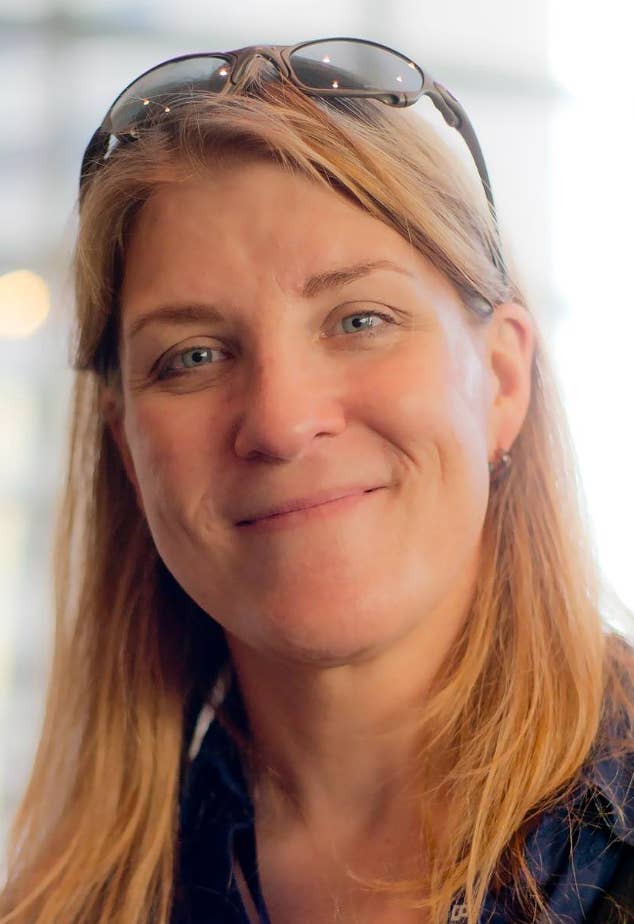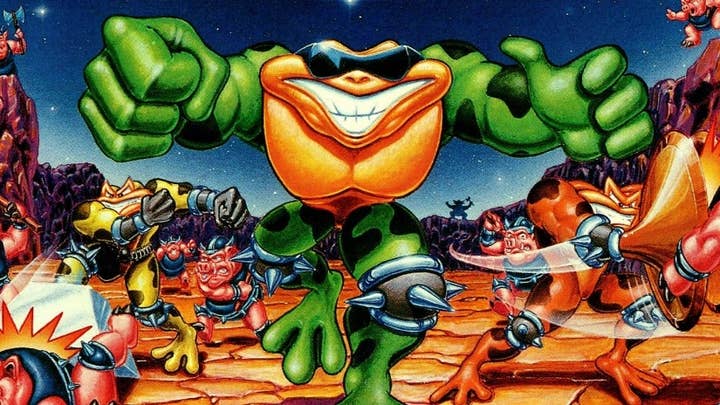Unions aren't the only way to give developers leverage
DLC: Ex-IGDA director Kate Edwards on labour issues, plus Battletoads isn't a sign Rare is reverting to old IP and Forza Horizon 4's 'pothole technology'
Here at GamesIndustry.biz, we like to ensure our interviews are as comprehensive as possible - but this doesn't mean every insight we gather makes it to the final article. Every now and then, there are comments that don't quite fit with the full feature but still deserve to be covered in some form. And so we gather them in these still-not-quite-finalised columns, published under the banner of 'DLC'.
Alternatives to unions
The call for unionisation has never seemed louder across the industry than it has over the past few months, peaking around GDC and the IGDA's annual developer survey. Between 2009 and 2014, this study found the proportion of developers in favour of unions rose from 33 per cent to 56 per cent. Yet in the 2018 survey, this topic wasn't even addressed - something we discussed at length with the body's director Jen MacLean, who said such organisations won't necessarily solve the problems people might think.

We spoke to former IGDA director Kate Edwards for The GamesIndustry.biz Podcast during E3, and couldn't pass up the opportunity to ask for her own take on the matter.
"When I was at the IGDA, I was asked about unions quite a bit," she recalls. "I was actually approached by the Hollywood unions to prosthelytise to the IGDA. At the time I said no - not because I'm anti-union, because I'm not, but I didn't want to see the game developer community be taken advantage of by existing unions for the sake of growing their membership.
"If unionisation happens, it has to serve the interest of the game developers first and foremost. One of the things that was crystal clear to me leaving the IGDA after five years and talking to thousands of developers worldwide, is that developers are desperate for leverage. They want leverage in some form, they want to be able to know they have some recourse against companies, against publishers, whatever the case may be... I think for a lot of developers, that means unions. Because they don't have another construct for what that leverage might look like."
After leaving the IGDA, this leverage is something Edwards has been "pursuing pretty vigorously", exploring the other forms it might take. While she doesn't have all the answers just yet, she tells us she is "convinced that forming some sort of organised mechanism for leverage is necessary."
"That might be a union, it might be something else like a legal defence fund - something else I've been working on," she says. "There are different avenues to have leverage happen because frankly I don't think unions are going to help everyone in the industry."
A lot of developers point to the model for film unions, suggesting it could be applied to the games industry. But Edwards believes this to be problematic for several reasons. For one, these unions don't necessarily solve the biggest issue developers want to address: crunch.
"You look at Hollywood unions, and do they crunch? Yes, they do," Edwards observes. "They crunch really hard, but it's in punctuated time periods to finish the film. The difference is they're guaranteed pay, bonuses and all the things they should get from doing that crunch, whereas in our industry, they're not. That's a major difference.
"For those who say, 'I don't want to crunch', that's not necessarily what a union's going to get you but if you say, 'I don't want to crunch and not get paid', it will help."
Another issue is that film unions are separated by discipline - actor, writer, producer, and so on. Within development alone, there are so many disciplines and sub-disciplines, this would be difficult to recreate. As such, Edwards believes in a more general solution.
"It would need to be more of a broad guild-type system that accepts anybody who has something to do with the game development process... You can't have a union for environment artists and narrative designers because what happens to the people who switch in-between, like in VR for example? We have to have an organisation that's going to have that malleability within the vocations themselves because we're always going to have that within our industry. It's going to be interesting to see how this works."
Finally, there are some who believe that simply becoming members of Hollywood unions - as those bodies have suggested to Edwards over the years - could give them the leverage they need, but again Edwards disagrees.
"If you're a games producer at the Producers Guild of America, do you think you - no matter how famous you are - are going to have equal say to someone like Martin Scorsese? Steven Spielberg?" she says. "No, I think a game producer would always be a second-class citizen within the union."

Rare: Don't read too much into Battletoads' return
Conversations about Rare for the past few years have been dominated by Sea of Thieves, but there was a brief announcement at E3 that gave the studio's long-time fans cause for even more excitement. UK indie Dlala Studios has been entrusted with the Battletoads IP and is currently working hard on a brand new game.
Speaking to GamesIndustry.biz at E3, design director Mike Chapman praised the team (which has actually been doing support work for Sea of Thieves), and said Dlala's pitch and the staff's genuine enthusiasm for the series convinced Rare it was "a great opportunity to bring a beloved IP back". But, Chapman stresses, this is not necessarily a sign of further imminent Rare revivals.
"Don't read too much into it," he says. "It's more about the right team, and the right opportunity. It's less about some new initiative we're starting. We just had a team that was passionate about the concept, they had some great ideas, and it felt like the right project to go and foster.
"But if you look back through Rare's history, we had these smash successes but we don't often go and do a sequel - we usually go and do something different. That's really the Rare magic: taking genres that are fledgling or creating new ones and exploring that space. That's what the team is passionate about."
In our discussion about Sea of Thieves, Chapman told us there are now four teams dedicated to Sea of Thieves expansions. Does this also suggest that Rare simply didn't have the capacity to make a new Battletoads, hence outsourcing to Dlala?
"We'd be foolish not to have other teams looking at other things," Chapman says. "We have a small team at Rare that are looking at future stuff beyond Sea of Thieves - it's always cool to have irons in the fire, little ideas bubbling away, so that's always going to be the case.
"Sea of Thieves has seen huge success so that's our focus right now. It's different and we're innovating in many ways, so that's our focus. But we've always got an eye on the future. We have to."

Playground's Britain is full of holes
In the run-up to E3, there was plenty of speculation (including among the GamesIndustry.biz team) about where Playground Games would set the next Forza Horizon game. China? Japan? South America?
It turns out the studio looked no further than its own backyard: the UK. Given the developer's incredible attention to detail in past Horizons, this brought up a question we couldn't resist asking: are there potholes?
For those who have never driven in Great Britain, the erratic weather (since March 2018, we've enjoyed everything from nationwide blizzards to the hottest summer in 100 years) takes its toll on our tarmac.
Central to Playground Games' vision for Forza Horizon 4 are dynamic seasons that rotate every week, so surely this creates sizeable schisms in the roads of its shared virtual world?
"Pothole technology was actually a really big thing for our environment team," says chief creative officer Ralph Fulton. "The team is split up into sub-disciplines, and one of those is roads - an incredibly important role in a Horizon game because roads are key to that core driving experience.
"And you're right, you can't go out and research Britain and not realise there is barely a road in the country that is not afflicted by some really heinous potholes. You can't say you've built an authentic Britain without them."
As such, Playground has developed special rendering technology and used parallax mapping to make its digital potholes look realistic, but it's also had to dedicate considerable time to the physics around them.
"What is it going to do to your car?" Fulton posits. "It can't burst the tire, like most of them would in Britain. It can't throw the car, but equally you should feel it. It should unsettle the car a little bit, so there's a bit of physics work involved there. The car handling guys are making sure that in any type of car, one of these potholes isn't going to send you off the road.
"If you were to slow down on any of the roads [in the E3 demo], you will see at the start of the Autumn drive, there's a massive pothole that makes you go, 'somebody should do something about that'."
